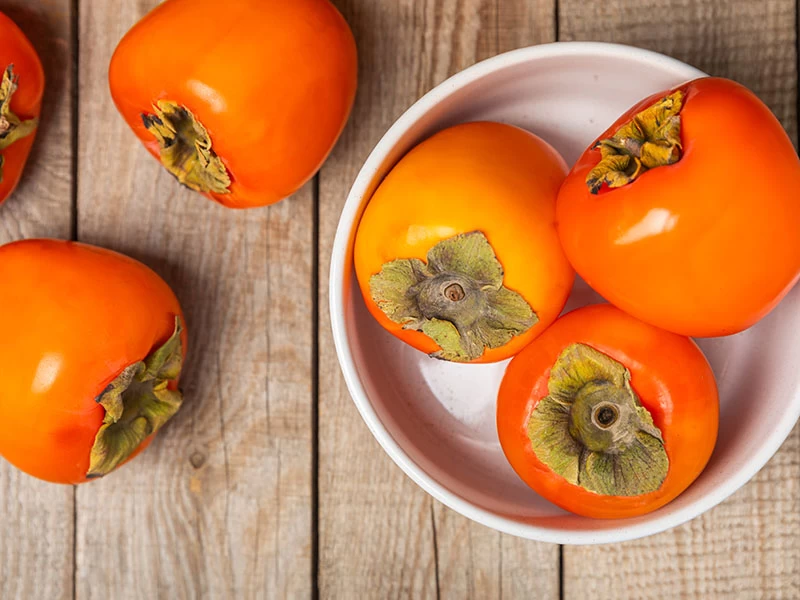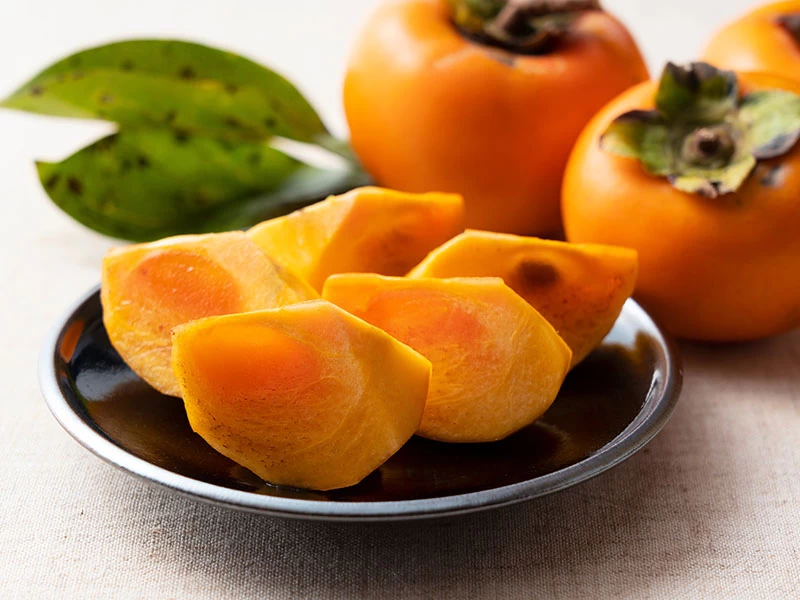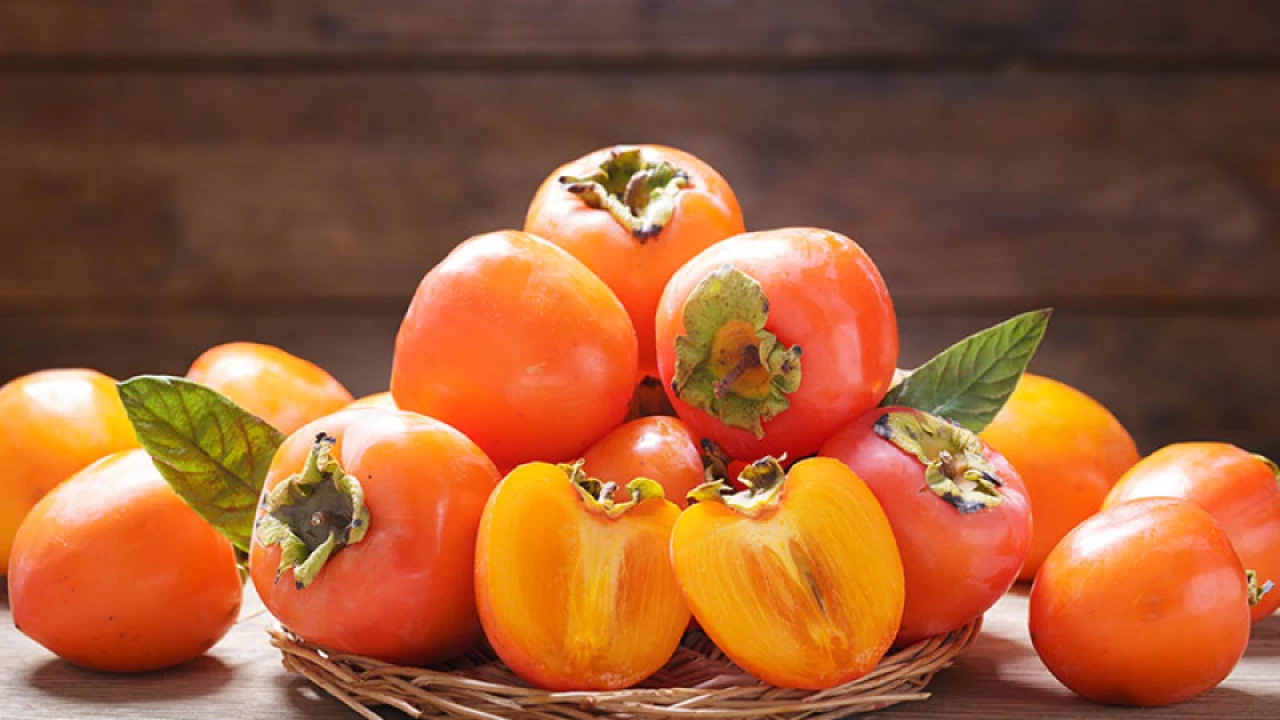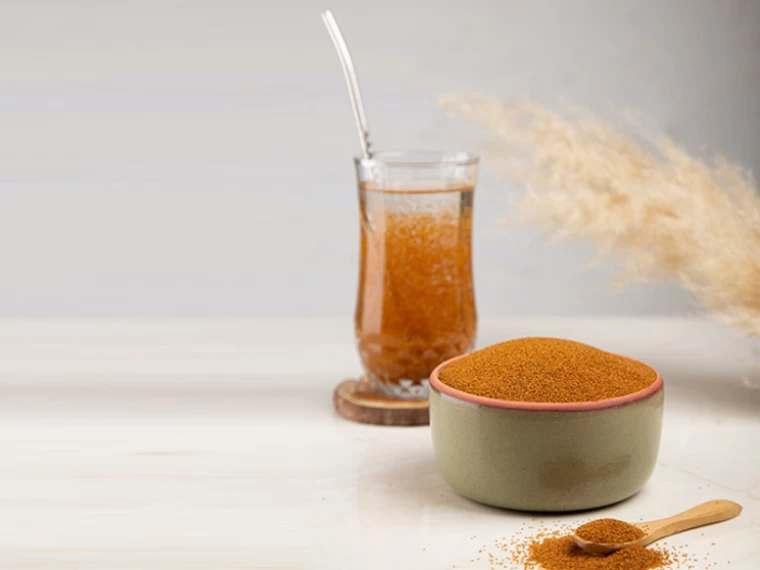Colds are one of the most common seasonal illnesses that affect many people. To treat and prevent colds, consuming natural and nutritious foods such as persimmon can be very beneficial. Persimmon is a sweet and medicinal autumn fruit that helps strengthen the immune system and reduce cold symptoms. In this article, we will examine the benefits of persimmon for colds.
General Benefits of Persimmon
Persimmon is rich in vitamins and nutrients essential for overall health. This fruit contains a significant amount of vitamin C, vitamin A, antioxidants, and fiber, which help improve immune function and digestive health. Additionally, persimmon has anti-inflammatory properties that can help reduce the complications of seasonal illnesses such as colds.
Impact of Persimmon on Reducing Cold Symptoms

Due to its high vitamin C content, persimmon has a significant impact on reducing cold symptoms. This vitamin helps strengthen the immune system and reduces the severity of symptoms such as sore throat, runny nose, and cough. Regular consumption of persimmon during colds can shorten the duration of the illness and facilitate quicker recovery.
Strengthening the Immune System
One of the best ways to prevent colds is by strengthening the immune system. Persimmon, with its considerable amounts of vitamin C and antioxidants, makes the body more resistant to viruses and reduces the likelihood of contracting infectious diseases.
Reducing Inflammation and Sore Throat
Throat inflammation is one of the most common cold symptoms. Persimmon has anti-inflammatory properties that can help soothe a sore throat and reduce inflammation. The phenolic compounds in persimmon calm the irritated tissues in the throat area and speed up the healing process.
Hydrating the Body
During a cold, the body may become dehydrated due to fever and sweating. Persimmon, with its high water content and natural electrolytes, helps hydrate the body and prevent dry throat.
Persimmon and Improved Respiratory Function
Persimmon contains compounds that help improve respiratory function. This fruit can reduce mucus secretion and clear the airways.
Reducing Cough and Phlegm
One of the essential features of persimmon is its expectorant property. This helps better expel mucus secretions and reduce severe coughs during colds.
Alleviating Sinus Problems
Many people with colds face sinus issues. Due to its anti-inflammatory properties, persimmon can help reduce sinus inflammation and improve breathing.
Improving Lung Function
Consuming persimmon helps improve lung function and prevent congestion and respiratory infections caused by colds. This is due to the antioxidant and anti-inflammatory compounds present in persimmon.
Antiviral and Antibacterial Properties of Persimmon

Persimmon contains compounds that can help fight viruses and bacteria. This makes persimmon a natural option for preventing and treating colds.
Fighting Cold Viruses
Studies have shown that some compounds in persimmon have antiviral properties and can prevent the growth and spread of cold viruses.
Antibacterial Properties
Bacterial infections can sometimes worsen cold symptoms. Persimmon, with its antibacterial compounds, helps reduce these infections.
Reducing Oxidative Stress
Oxidative stress is one of the factors that weaken the immune system. The antioxidants in persimmon help reduce oxidative stress, strengthen the immune system, and lessen the severity of colds.
Persimmon and Digestive Health during Colds
During colds, digestive health is also significant. Persimmon contains a lot of fiber that helps improve digestive function.
Preventing Constipation
Consuming persimmon during colds can help prevent constipation, which is a common problem during this period. The fiber in persimmon improves bowel movements and regulates the digestive system.
Strengthening Gut Microbiome
Gut health has a direct impact on the immune system. Persimmon, with its prebiotic compounds, helps grow beneficial gut bacteria and strengthens the immune system.
Reducing Nausea and General Weakness
Colds can cause nausea and general weakness. Due to its natural sugars and various vitamins, persimmon increases the body's energy and prevents feelings of weakness.
Conclusion
Persimmon is a nutrient-dense fruit that significantly reduces cold symptoms. This fruit, with its vitamin C, antioxidants, and anti-inflammatory compounds, helps strengthen the immune system, reduce throat inflammation, improve respiratory function, and promote digestive health. Consuming persimmon during the cold season can be a natural and effective remedy for preventing and treating colds.
Frequently Asked Questions
- Is consuming persimmon beneficial for everyone during colds?
Yes, persimmon is beneficial for most people, but those with digestive issues such as irritable bowel syndrome should consume it in moderation.
- Does persimmon worsen a cough?
No, persimmon's expectorant property helps reduce cough and clear the airways.
- What is the best time to consume persimmon for colds?
It is best to consume persimmon throughout the day along with other nutritious foods like honey and cinnamon to enhance its therapeutic effects.
- Is persimmon suitable for children with colds?
Yes, persimmon is beneficial for children, but it should be given in small amounts and in a mashed form or combined with other foods.
- Can persimmon replace cold medications?
Persimmon is a natural supplement for treating colds, but in severe cases, consulting a doctor and taking prescribed medications is necessary.





